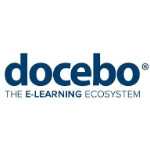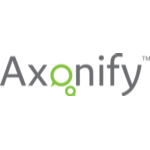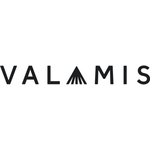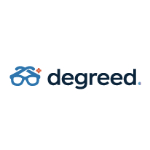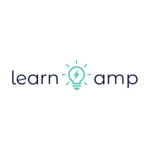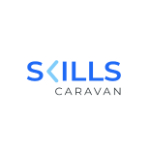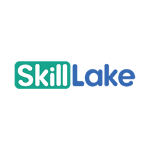TechnologyCounter provides genuine, unbiased real user reviews to help buyers make informed decisions. We may earn a referral fee when you purchase through our links, at no extra cost to you.
List of 15 Best Learning Experience Platform
Showing 1 - 15 of 25 productsDocebo is a learning management system that revolutionizes the way organizations deliver training to their employees. With its intuitive platform features, Docebo empowers companies to create impactful learning experiences that boost employee perform...Read Docebo Reviews
Axonify is a powerful, game-changing platform that transforms the traditional approach to employee learning and development. By using innovative techniques and engaging content, Axonify empowers organizations to tap into the full potential of their w...Read Axonify Reviews
Continu is a future of employee training and development. With its innovative features and user-friendly interface, Continu streamlines the learning process, making it easier than ever for organizations to train and empower their dedicated team membe...Read Continu Reviews
DeveLoop is a highly versatile and user-friendly software designed to revolutionize the way organizations approach employee learning and development. Through its innovative features interface, DeveLoop streamlines the training process and enhances em...Read DeveLoop Reviews
Together Enterprise is a software that brings innovation and efficiency to modern businesses. With its advanced features and user-friendly interface, Together Enterprise is a solution for streamlining processes, boosting productivity, and connecting...Read Together Enterprise Reviews
Valamis is a leading software providing personalized learning and development solutions for organizations of all sizes. With its innovative features and user-friendly interface, Valamis is revolutionizing the way companies train and develop their emp...Read Valamis Reviews
Sentence Degreed is a learning platform that enables individuals and organizations to discover, manage, and measure their learning and development experiences. With personalized pathways and resources, Degreed empowers users to continuously upskill a...Read Degreed Reviews
Are you tired of slow and unpredictable internet speeds? Look no further, because Wormhole is here to change the game. Say goodbye to buffering and hello to seamless browsing with our revolutionary software. Say hello to a whole new world of possibil...Read Wormhole Reviews
Rallyware is a software that helps businesses drive performance and engagement among their workforce. With its user-friendly interface and innovative features, Rallyware revolutionizes employee training and motivation, resulting in increased producti...Read Rallyware Reviews
Learn Amp is a dynamic learning management software designed to revolutionize the way organizations train and develop their employees. With its user-friendly interface and powerful features, Learn Amp makes it easier for businesses to create, deliver...Read Learn Amp Reviews
Cornerstone Learning is a software that is transforming the way organizations train, develop and engage their employees. With its user-friendly interface features, Cornerstone Learning is leading the way in modern employee learning and development so...Read Cornerstone Learning Reviews
OpenSesame is a perfect solution for all your e-learning needs. Empower your organization with this user-friendly platform designed to simplify the creation, management, and delivery of online courses. With OpenSesame, experience a seamless is a e-le...Read OpenSesame Reviews
EdApp is a mobile learning platform that aims to transform the way organizations train and educate their employees. With its user-friendly interface and innovative features, EdApp is designed to make learning engaging, convenient, and effective. Get...Read EdApp Reviews
Skills Caravan LXP is a solution for all your organizations learning and development needs. With its intuitive and user-friendly interface, it offers an unmatched learning experience for both employees and managers. From personalized training plans t...Read Skills Caravan LXP Reviews
Skill Lake, your all-in-one solution for online skill training. Our platform offers a wide range of courses to enhance your knowledge and expertise in various fields. With user-friendly features and expert instructors, you can easily develop new skil...Read Skill Lake Reviews
- What Is Learning Experience Platform?
- Top Reasons Why Businesses Need Learning Experience Platform?
- What Are the Top Key Features of Learning Experience Platform?
- What Are the Top Benefits of Learning Experience Platform?
- What Are the Steps to Choose the Right Learning Experience Platform?
- What Are the Types of Learning Experience Platform for Different Industries?
- What Are the Technology Trends for Best Learning Experience Platform?
- What Are the Deployment Options for Learning Experience Platform?
What Is Learning Experience Platform?
The term "Learning Experience Platform" (LXP) pertains to digital or online platforms designed to facilitate customized learning experiences for employees within enterprises. These platforms facilitate the creation, implementation, and administration of staff learning programs for enterprises.
The best learning experience platforms facilitate the establishment of an individualized learning milieu by granting users the ability to get educational materials from diverse origins, including but not limited to courses, webinars, virtual classrooms, videos, podcasts, and several other formats.
This form of material can be accessed through a range of devices, including laptops, desktop computers, smartphones, and tablets. In addition, the platform facilitates the monitoring of employees' learning progress by enterprises, enabling them to make necessary adjustments and updates to the content to individual requirements.
Furthermore, the LXP learning management system assumes a significant role in facilitating the development of social learning experiences. The platform facilitates staff collaboration, knowledge sharing, and networking opportunities.
Additionally, the platform facilitates access to a wide range of global expertise and resources, thereby assisting employees in staying abreast of the evolving industry requirements. Hence, the best LXP systems prove to be an indispensable asset for enterprises in the domains of learning, collaboration, and professional growth.
This platform enables firms to develop and administer customized educational opportunities for their staff, while also ensuring that all individuals remain informed about current industry norms and practices. The employee learning and development platform is a highly effective means of enhancing staff knowledge and skills.
Top Reasons Why Businesses Need Learning Experience Platform?
1. To promote active participation in learning objectives – The learning experience platform (LXP) offers an immersive and interactive educational environment that effectively captures learners' interest and fosters collaborative engagement.
2. To create accessible online training materials – The top learning experience platforms facilitate learners' access to structured digital resources from a wide range of devices and geographical locations.
3. To track learning progress and measure results – This facilitates the ability of administrators to effectively monitor and evaluate performance, analyze outcomes, and track progress.
4. To personalize learning experiences – The best learning experience platform offers learners personalized information and activities that are customized to their unique learning styles, objectives, and requirements.
5. To create adaptive learning paths – This facilitates the progression of learners by providing tailored curriculums and enabling the use of feedback and assessment outcomes to assure their adherence to a predetermined trajectory.
6. To enable anytime, anywhere learning – It provides adaptable learning opportunities and facilitates mobility while upholding the integrity of the learning experiences.
7. To reward and motivate learners – The LXP platforms employ many strategies, including gamification, badges, leaderboards, and virtual awards, to enhance student engagement and foster motivation.
8. To facilitate collaboration and knowledge sharing – This facilitates collaborative interactions among learners through the utilization of various elements such as discussion boards and video chat.
9. To provide tailored instructor support – It provides educators and coaching professionals with a range of tools that may be used to complement their instructional methods and improve the overall learning experience.
10. To drive content modernization and relevancy – The learning experience platform provides users with tools for content curation, enabling them to upload, distribute, and effectively manage both new and pre-existing digital resources.
11. To provide accurate reporting and analytics – The best learning experience platforms facilitate the generation of reports by administrators about many aspects such as the courses provided, individual user performance, overall performance, and other relevant metrics.
12. To enable game-based learning – The best learning experience platforms incorporate the use of games and simulations to enhance learner engagement, encourage the acquisition of knowledge, and evaluate the understanding of learners.
13. To support seamless integration with existing systems – The learning management system experience offers integration capabilities with widely used corporate systems, including HRMS and CRM, among others. This integration facilitates the efficient management of administrative tasks and reporting procedures.
14. To support multi-language development – The top learning experience platforms enable the cultivation of multi-language proficiency, hence enabling the dissemination of content in many languages to global audiences.
15. To ensure scalability and cost-effectiveness – This is specifically developed to accommodate the growth of organizations, thereby guaranteeing scalability and cost-effectiveness over an extended period of time.
What Are the Top Key Features of Learning Experience Platform?
1. Flexible Learning Environment: An effective learning experience platform should provide a high degree of flexibility with regards to the distribution of material, implementation of learning methodologies, and accessibility. This feature enables users to personalize their educational experience based on their individual requirements and preferences.
2. User-friendly Interface: The presence of a user interface that is both easy to use and intuitive is a crucial attribute that facilitates users in maximizing their learning experience. The ideal design should incorporate user-friendly navigation facilitated by intuitive icons and menus.
Additionally, it should offer a diverse array of functionalities, such as live chat assistance and drag-and-drop tools for content creation.
3. Gamified Learning Atmosphere: The utilization of gamification is a successful strategy in engaging learners and cultivating motivation.
An effective LXP system should incorporate gamification features, such as interactive quizzes, competitive leaderboards, and recognition through prizes, to enhance the enjoyment and interactivity of the learning process.
4. Personalization of Activities: Providing customized learning activities that are specifically designed to align with the learner's individual interests can contribute to the development of a more engaging and purposeful educational encounter.
The proposed solution should encompass suggestions for content, as well as the personalization of notifications, reminders, and feedback in accordance with the unique learning styles of individual users.
5. Adaptive Course Path: An adaptable course route offers an individualized learning trajectory for every user. This should encompass the capacity to modify the material, such as the level of difficulty, as the user advances in their educational trajectory, so offering an optimum pedagogical encounter.
6. Cross-Platform Accessibility: The ability for consumers to access their learning materials on any device is crucial, necessitating cross-platform compatibility. This encompasses the capacity to efficiently and smoothly access their course materials across many platforms, including desktop computers, mobile devices, and tablets.
7. Learning Analytics: Learning analytics offer valuable insights based on data analysis regarding the individual growth of users and the general effectiveness of the learning program. This functionality enables educators to recognize patterns and reveal opportunities for enhancement within their instructional offerings.
8. Data Security: Ensuring the safety and security of users' data is of paramount importance, necessitating the implementation of comprehensive data security measures. An effective learning management system experience should incorporate several security features, including encryption, cloud computing, private networks, access control, and data redundancy.
What Are the Top Benefits of Learning Experience Platform?
1. Increased Engagement: The utilization of a learning experience platform affords users the opportunity to personalize their learning trajectories, hence fostering heightened levels of engagement with the subject matter.
Moreover, the incorporation of interactive modules, game aspects, and personalized feedback serves to enhance user engagement in the educational journey.
2. Improved Retention: The incorporation of personalized learning materials has been shown to enhance users' retention rates. By providing users with the opportunity to review content that aligns with their personal interests, there is an increased likelihood of knowledge retention.
3. Quiz & Exam Creation: The learning experience platform software provides educators with the capability to efficiently generate customized quizzes and tests that align with the specific content being taught. This practice guarantees that customers are compelled to showcase their comprehension of the subject matter.
4. Gamification: Numerous top learning experience platforms integrate game-based components into their instructional materials, hence fostering increased user engagement in the learning journey through the provision of incentives such as completion awards and leaderboards.
5. Increased Accessibility: Learning experience platforms (LEPs) provide users with the ability to access educational content from many locations, including classrooms, homes, and while traveling. This feature enables individuals to acquire knowledge and manage their learning progress according to their preferred pace and timetable.
6. Adaptive Learning: By integrating adaptive learning methodologies into the top best learning experience platforms, educators have the ability to customize the content to suit the user's specific preferences and learning modalities.
7. Collaboration: Learning experience platforms (LEPs) also facilitate user collaboration and discourse, thereby fostering mutual learning and enhancing team interactions.
8. Cost Savings: Through the utilization of cost-effective tools and features offered by learning experience platforms, educators have the ability to diminish expenses linked to physical classrooms, textbooks, and supplementary materials.
What Are the Steps to Choose the Right Learning Experience Platform?
1. Determine and delineate your precise training requirements and goals. When designing a training program, it is important to consider several factors. These include the specific information or skills that you intend to convey to your audience, the size of the learner population, and the timeframe during which the training will be delivered.
2. Conduct a comprehensive investigation on the diverse array of Learning top LXP platforms now accessible and juxtapose them with the objectives that have been compiled. One should carefully evaluate the characteristics of each platform and assess how they can contribute to the achievement of training goals.
3. The objective is to assess the financial implications, user-friendliness, and potential for expansion of the various proposed solutions. It is advisable to take into account the financial implications of both the software itself and the accompanying services required for platform management, ensuring that they align with your budgetary constraints.
Additionally, it is imperative to conduct an evaluation of the platform's usability, specifically focusing on the interface, content delivery, and user-friendliness for both learners and administrators responsible for platform management.
Furthermore, it is crucial to take into account the concept of scalability and the flexibility to extend the platform in order to accommodate future requirements.
4. To ascertain the nature of the content that has to be disseminated and the appropriate mode of delivery. The user is advised to carefully consider the specific type of content that is necessary for their intended purpose, including but not limited to videos, podcasts, course modules, ebooks, quizzes, and other relevant formats.
Additionally, it is important to contemplate the most effective means of delivering this content to the intended audience.
5. Evaluate user input from individuals who have already utilized the Learning Experience Platform and analyze their firsthand encounters with the platform.
6. In order to ascertain the suitability of the Learning Experience Platform (LXP) under consideration, it is imperative to conduct a demonstration that thoroughly evaluates its alignment with the specific requirements and target audience.
7. It is imperative to ensure that the chosen best Learning Experience Platform (LXP) is specifically built to facilitate the achievement of training objectives, while also being user-friendly and easily manageable.
8. It is advisable to thoroughly examine the Terms and Conditions of the selected Learning Experience Platform in order to ascertain the absence of any unanticipated expenses or limitations.
9. Evaluate the quality of customer assistance and after-sales service offered by the vendor.
What Are the Types of Learning Experience Platform for Different Industries?
Learning experience platforms (LXPs) are software tools that have been specifically developed to consolidate, streamline, and evaluate learning and development initiatives inside an organization or sector.
The best LXP systems aim to enhance the effectiveness of learning procedures, enhance employee involvement and retention rates, and deliver customized experiences by utilizing data and analytics to customize content for each learner.
Lxp learning management system can facilitate a wide range of learning encounters, encompassing various formats such as face-to-face sessions, virtual learning environments, mobile applications, and traditional instructor-led training. Various sectors can employ diverse learning experience platforms tailored to their specific requirements.
1. Corporate LXPs: These platforms are well-suited for organizations and corporations that have a continuous requirement to deliver training to their personnel or offer educational materials to their clients.
Typically, these platforms are characterized by a user-friendly interface designed for both administrators and learners, content curation capabilities, provision of a resource library, and the ability to grant certification.
2. Higher Education LXPs: The aforementioned learning tools are specifically crafted to offer a customized educational encounter for individual students. Frequently, these platforms encompass a comprehensive range of educational resources, including grade books, interactive quizzes, and exams, as well as facilities for collaboration and communication.
3. Government LXPs: These platforms are specifically developed to offer organizations a cohesive system for disseminating training materials to their employees, partners, or members of the public.
Government best LXP systems frequently encompass a comprehensive repository of educational materials, facilitation of certification processes, provision of an e-learning platform, and utilization of analytical tools for performance evaluation.
4. K-12 LXPs: Educational institutions and districts employ these platforms to offer a complete and captivating learning environment, empowering students to independently explore and delve into various subjects at their preferred speed.
K-12 Learning Experience Platforms (LXPs) commonly encompass a comprehensive range of features, such as a repository of educational materials, automated evaluation mechanisms, and tools for fostering collaborative interactions.
5. Healthcare LXPs: These platforms are specifically developed to offer healthcare organizations a holistic solution for delivering training, content, and certification.
Top LXP platforms frequently encompass several features such as a comprehensive resource collection, tools for creating courses, and capabilities for generating reports and doing analytics.
What Are the Technology Trends for Best Learning Experience Platform?
Currently, a multitude of technological developments are contributing to the development of an ideal learning management system experience. These technologies prioritize the incorporation of diverse and significant digital components to establish an interactive, individualized, and captivating educational setting for every student.
The proliferation of artificial intelligence (AI) tools and algorithms is contributing to the customization of the educational experience. Artificial intelligence (AI) facilitates the utilization of software and digital platforms to expeditiously examine a learner's data, subsequently providing customized and individualized information and services to the learner.
In addition, artificial intelligence can observe and assess a learner's advancement and engagement in real-time. Furthermore, there is a growing trend in the utilization of virtual reality (VR) and augmented reality (AR) as effective tools for providing immersive educational experiences.
These technological advancements provide learners the opportunity to delve into the subject matter with increased depth, engage with it more organically, and cultivate a more comprehensive comprehension of the material. Furthermore, the adoption of cloud-based computing is prevalent in educational systems.
Cloud computing enables learners to conveniently access lesson plans and various learning materials regardless of their geographical location. Furthermore, it facilitates a smooth and efficient collaboration among learners, instructors, and mentors. Finally, the proliferation of mobile devices has played a crucial role in transforming educational encounters.
Mobile devices facilitate the ability of learners to conveniently access material and services at any given time and location, hence eliminating the necessity for learning to be confined solely within the confines of a conventional classroom setting.
Collectively, these technological advancements are contributing to the transformative evolution of the LXp learning management system. Artificial intelligence (AI), virtual reality (VR), augmented reality (AR), cloud computing, and mobile devices are enabling learners to access individualized knowledge, engage in meaningful interactions, and participate in engaging possibilities, so facilitating the realization of their maximum capabilities.
What Are the Deployment Options for Learning Experience Platform?
The available deployment options for a Learning Experience Platform (LXP) encompass the following:
1. Cloud Deployment: The scalability of this approach is notable, as the platform can be readily adjusted to accommodate varying levels of demand.
Typically, the provider assumes the role of the host, assuming accountability for security, infrastructure, and data management, including backups, among other responsibilities.
2. Deployment through Self-Hosting: This particular deployment approach enables an organization to independently host their own LXP learning experience platform. This alternative provides enhanced management capabilities in terms of security, data controls, privacy, and customisation.
Nevertheless, it is imperative to examine additional factors including hardware, software, and technical competencies.
3. Hybrid Deployment: This alternative entails the integration of both cloud-based and self-hosted deployment methods. This approach can effectively achieve a desirable equilibrium between control and customization, while also ensuring scalability and security as offered by the cloud provider.
